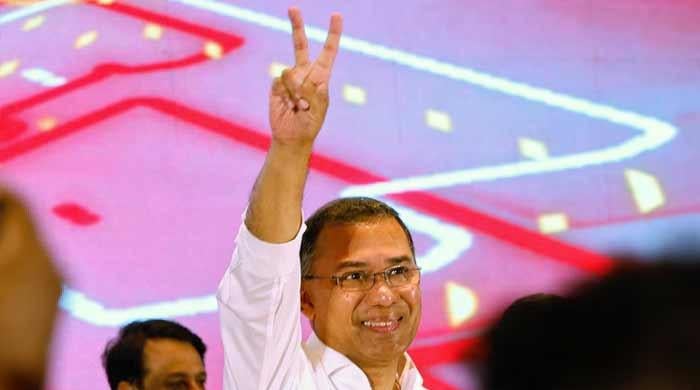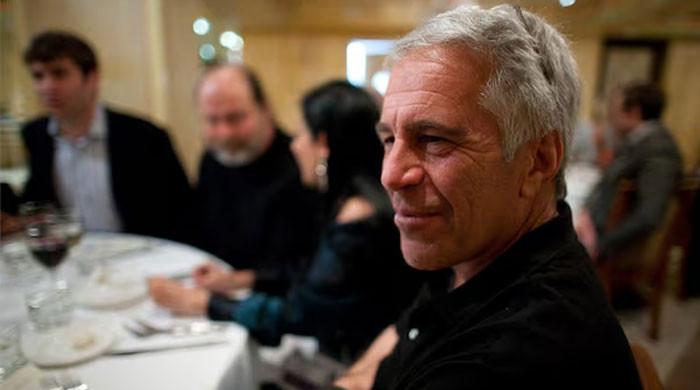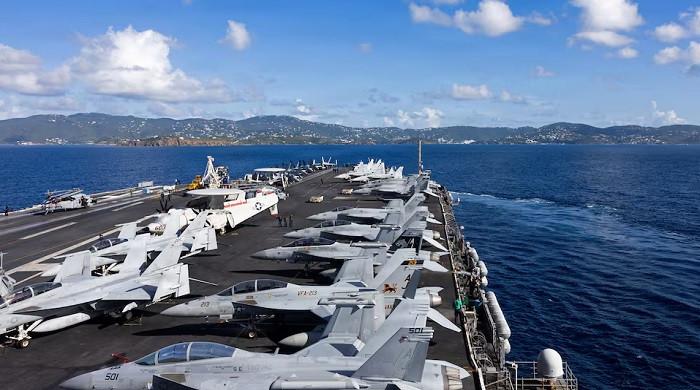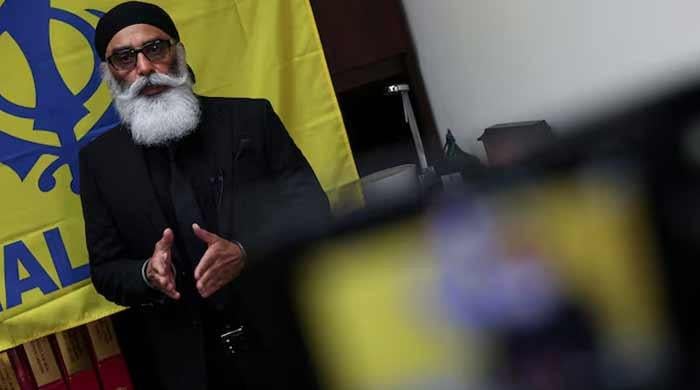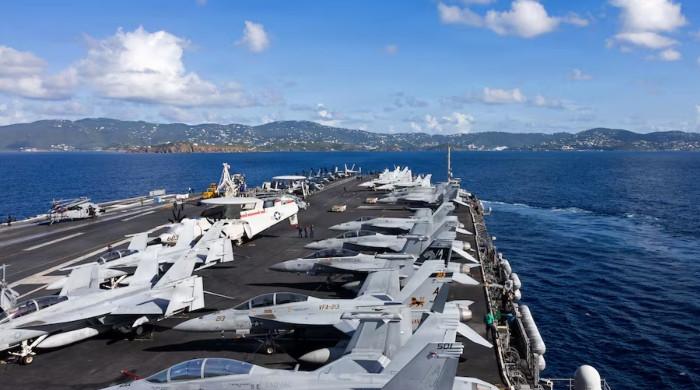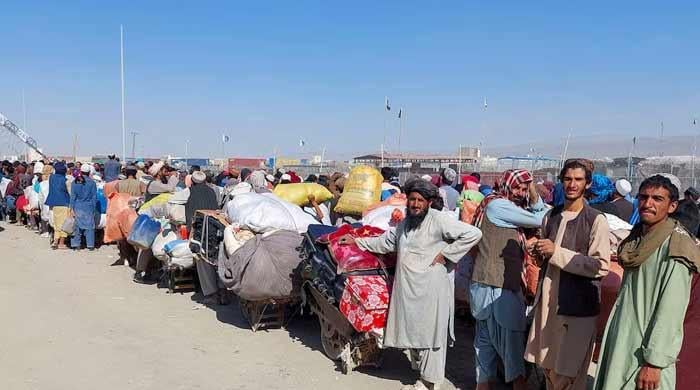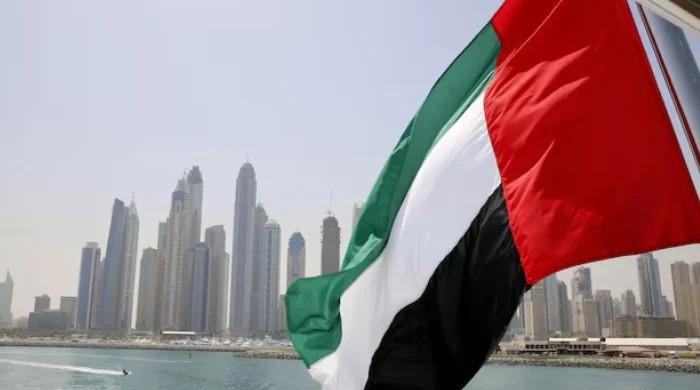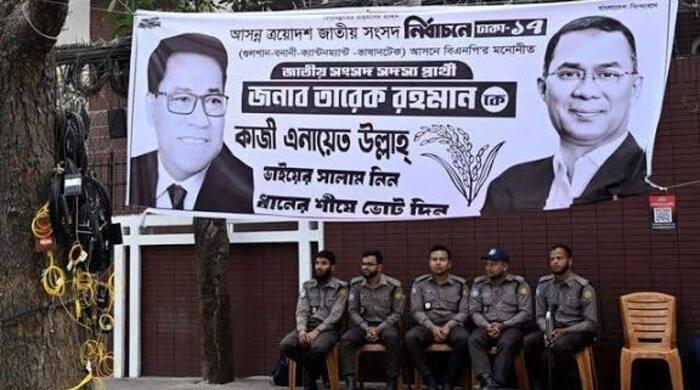At least 13 killed as Iraq resumes live gunfire against protesters
At least one protester was killed with live fire at a funeral procession for another who had died hours earlier
November 05, 2019
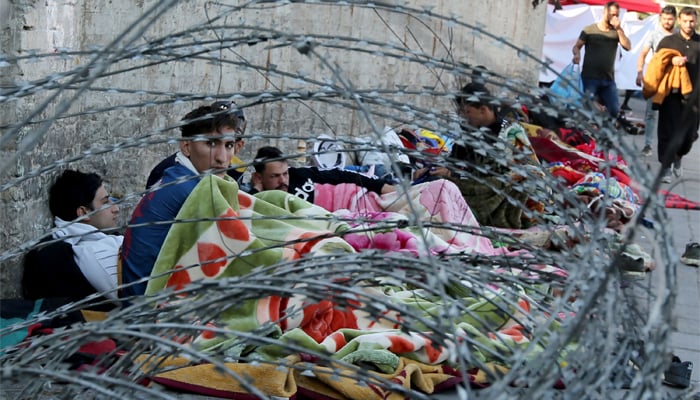
BAGHDAD: Iraqi security forces shot dead at least 13 protesters in the past 24 hours, abandoning weeks of comparative restraint to unleash live gunfire in a bid to crush demonstrations against the political parties that control the government.
After eight people were killed during the day on Monday, security forces shot dead at least five others overnight or early on Tuesday, including one killed with live fire at a funeral procession for another who had died hours earlier.
More than 260 Iraqis have been killed in demonstrations since the start of October against a government they see as corrupt and beholden to foreign interests, above all Iran.
Also read: Over 1,000 protest for work, services in Iraq capital
Most of those deaths took place during the first week of the demonstrations, when snipers shot on crowds from Baghdad rooftops. But after the government appeared to have curbed the use of some deadly tactics, the protests swelled rapidly over the past ten days.
The new violence began a day after Prime Minister Adil Abdul-Mahdi appealed to protesters to suspend their movement, which he said had achieved its goals and was hurting the economy.
He has said he is willing to resign if politicians agree on a replacement, and has promised a number of reforms. But protesters say that is not enough and the entire political class needs to go.
‘Continued bloodshed’
Since putting down an insurgency by Daesh in 2017, Iraq has enjoyed two years of comparative stability. But despite its oil wealth, many people live in poverty with limited access to clean water, electricity, healthcare or education.
Read more: Iraqi security forces open fire on protesters, kill 14
Protesters blame a political system that shares power among sectarian parties, making corruption entrenched. Abdul-Mahdi, in power for a year, enjoys the support of powerful Iran-backed political parties allied to armed militia.
A government report said nearly 150 people were killed in the first week of the unrest in early October, 70 percent from bullets to the head. Since then, security forces mainly used tear gas, rubber bullets, and stun grenades to repel protesters.
Though these tactics also caused fatalities, the protests grew far larger as word got out that they were safer, with families, women, and elderly people joining demonstrations by “revolutionary” youth, especially in Baghdad.
Did you know students are striking in Iraq protests as well?
By the end of last week tens of thousands of people were turning out daily for by far the biggest anti-government demonstrations since the fall of Saddam Hussein in 2003.
But Monday’s violence suggested a return to the earlier tactics, including firing live rounds into crowds.
At least six protesters were killed on Monday in the capital Baghdad as security forces used live rounds. One protester was also killed in Shatra, a town in the south, on Monday.
Related: Iraq cleric demands government resign as deadly protests spike
Overnight, security forces killed two more people and wounded 12 in Shatra, security and medical sources said. Hospital sources said the protesters died from bullet wounds to the head. The protesters had tried to attack the house of a senior government official, security sources said.
Separately, at least two protesters were killed and dozens more wounded when security forces opened fire on protesters camped out at the entrance to the main Gulf port of Umm Qasr.
A sit-in there has halted operations at the port since last Wednesday. The port handles the vast bulk of imports for a population that relies on food from abroad.
Also read: Two killed, 26 wounded as protests flare again in Iraq
Local security officials imposed a curfew around 10PM on Monday night in an initial attempt to disperse the crowd, saying they would use force to disperse them if necessary.
Clashes continued into Tuesday morning, with a person killed during the funeral procession for one of the protesters killed overnight. Security forces responded with live rounds after residents, angry at the earlier use of force, threw stones at them near the funeral procession.
“Appalled by continued bloodshed in Iraq,” UN Iraq envoy Jeanine Hennis-Plasschaert tweeted overnight. “Violence only begets violence, peaceful demonstrators must be protected. It is high time for national dialogue.”
Iraqi authorities have been blocking the internet during protests. Internet access was restored on Tuesday morning after much of Iraq was cut off overnight. However, by early afternoon it seemed to be cut off again across much of the country.




